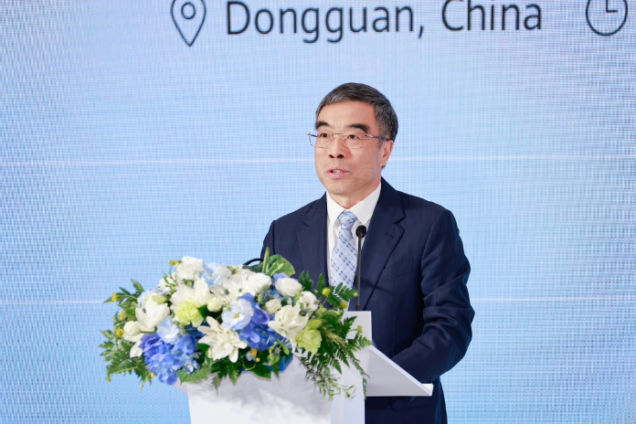The Chairman of the Board of Huawei has advocated universal access as he said that stable connectivity is not only a fundamental right for every individual but also a cornerstone of the digital economy.
Liang Hua speaking at the 3rd Huawei Sustainability Forum said, “Everyone should have access to stable connectivity.
"We see connectivity not just as a basic right for every person, but also as a cornerstone of the digital economy”.
The International Telecommunication Union (ITU) indicates that, by the end of September 2023, nearly 2.6 billion people, about 33% of the world's population, had never used the Internet.
Most of these people, the ITU indicated, are from developing countries or underserved rural communities.
In today’s rapidly evolving world, infrastructure plays a critical role in shaping the future of society.
While traditional infrastructure, including roads, bridges and power grids, has long been recognised as the backbone of economic growth and development, digital infrastructure is evolving to form the foundation of a sustainable and equitable society.
Digital infrastructure, particularly connectivity and computing power, has emerged as a crucial driver of socio-economic progress, as traditional infrastructure is not meeting the demands of societies in a world filled with technological advancements.
With the world grappling with the challenges of ensuring inclusive development, next-generation digital infrastructure is becoming as essential as its physical counterpart.
The Huawei Board Chair also underscored the centrality of connectivity in fostering a thriving society.
He emphasised its role in simplifying daily routines, strengthening economies, and promoting environmental sustainability.
Mr Liang indicated that “connectivity is playing an important role in every aspect of our lives. It makes our lives easier, our economies stronger, and our environment greener.”
Moreover, he stressed the importance of a potent computing infrastructure to accelerate digital and intelligent transformation across industries.
“We need to build a stronger computing infrastructure to speed up digital and intelligent transformation across industries and integrate the development of the digital and real economies”, he said.
As the world moves towards the future, investing in next-generation infrastructure is no longer a choice, but a necessity.
Prioritising the development of a reinforced network infrastructure and strengthened computing capabilities will lay the foundation for a more sustainable, equitable, and prosperous future for all.
Latest Stories
-
Samson’s Take: Arrogance of Power, Shameful Policing
3 hours -
Burnley score late to draw with Manchester United at Old Trafford
5 hours -
Bayer Leverkusen extend unbeaten run to 46 games after draw with Stuttgart
6 hours -
Chelsea come from two goals down to draw against Aston Villa
6 hours -
Andre Ayew scores in Le Havre’s 3-3 draw with PSG
6 hours -
GPL 2023/24: Kotoko draw with Medeama; Samartex go 7 points clear of Nations FC
6 hours -
Mahama cuts sod for construction of new multipurpose Jakpa palace in Damongo
6 hours -
NSS management assists Papao fire victims
7 hours -
EXPLAINER: Will dumsor end soon?
7 hours -
IMANI Africa takes on EC, accuses it of lying and publishing half truths
8 hours -
Manasseh Azure calls for investigation and prosecution of those responsible for GRA/SML contract
8 hours -
Kwesi Atuahene: Ghana’s health capital depends on HealthTech – Africa Center for Digital Transformation
9 hours -
13 signs your wife is planning on leaving you and you have no idea
9 hours -
IMANI Africa: Ghana’s EC’s dangerous and pathological conduct
9 hours -
If I speak there will be fire – Salah on Klopp row
10 hours

